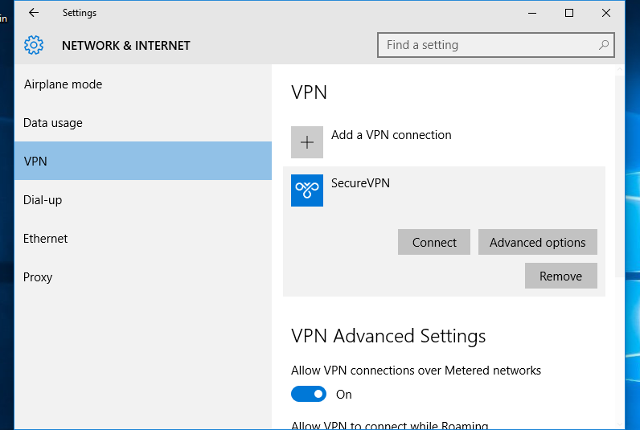

It works with multiple methods of encryption.It’s open source and vetted by third-parties.Say hello to an encrypted and private mobile connection. Plus, you can even use OpenVPN to connect over the mobile Apple iOS. If you do want to set up OpenVPN yourself, the high level of configuration can be disadvantageous as you’ll be less secure if it’s set up the wrong way. However, most VPN clients are able to offer a customized setup, which gets you around any configuration difficulties. Especially, when compared to PPTP or L2TP. Setting up OpenVPN on your own can be a bit tricky.
#Vpn server for windows 10 pptp android
It still isn’t supported by any platforms, but most third party software providers, like Android and iOS, are supported.
#Vpn server for windows 10 pptp install
You’ll still need to install a third-party application to use this type of connection. It’s 128-bit block size also gives it solid capabilities to handle larger files, without a reduction in performance. This is essentially the “gold standard”, and currently has no known weaknesses. It’s recommended to use AES encryption if security is your main concern. The additional cryptic algorithms it supports are: Other VPN protocols have been subject to NSA and other hacking, but so far, OpenVPN has managed to stay in the clear. To take the security standards even further it’s commonly coupled with AES encryption. In terms of security, it has a variety of methods and protocols like OpenSLL and HMAC authentication and shared keys. However, if you’re looking for speed, then using the UDP port will be the most efficient. Plus, it can run on any port, using both UDP and TCP protocols, so getting around firewalls won’t be a problem. The ability to hide in plain sight makes it less vulnerable to hacking, and more difficult to block. When traffic passes through an OpenVPN connection it’s hard to differentiate between an HTTPS over SSL connection. The open source nature of OpenVPN means the technology is maintained, updated, and inspected by a community of supporters. It relies upon open source technologies like the OpenSSL encryption library and SSL V3/TLS V1 protocols. The following VPNs use OpenVPN as a default protocol: It’s one of the newer VPN protocols, but it’s flexibility and security have made it one of the most commonly used. It’s the most recommended choice by leading VPN providers today. OpenVPN is the VPN protocol you’ll want to be using. Still in development.įaster and more secure alternative to PPTP and L2TP. Limited platform support beyond Windows and Blackberry Windows-platform, but works on other Linux distributions.

Linux, being built for other platforms and operating systems. Strong desktop support, but mobile could be improved.


 0 kommentar(er)
0 kommentar(er)
